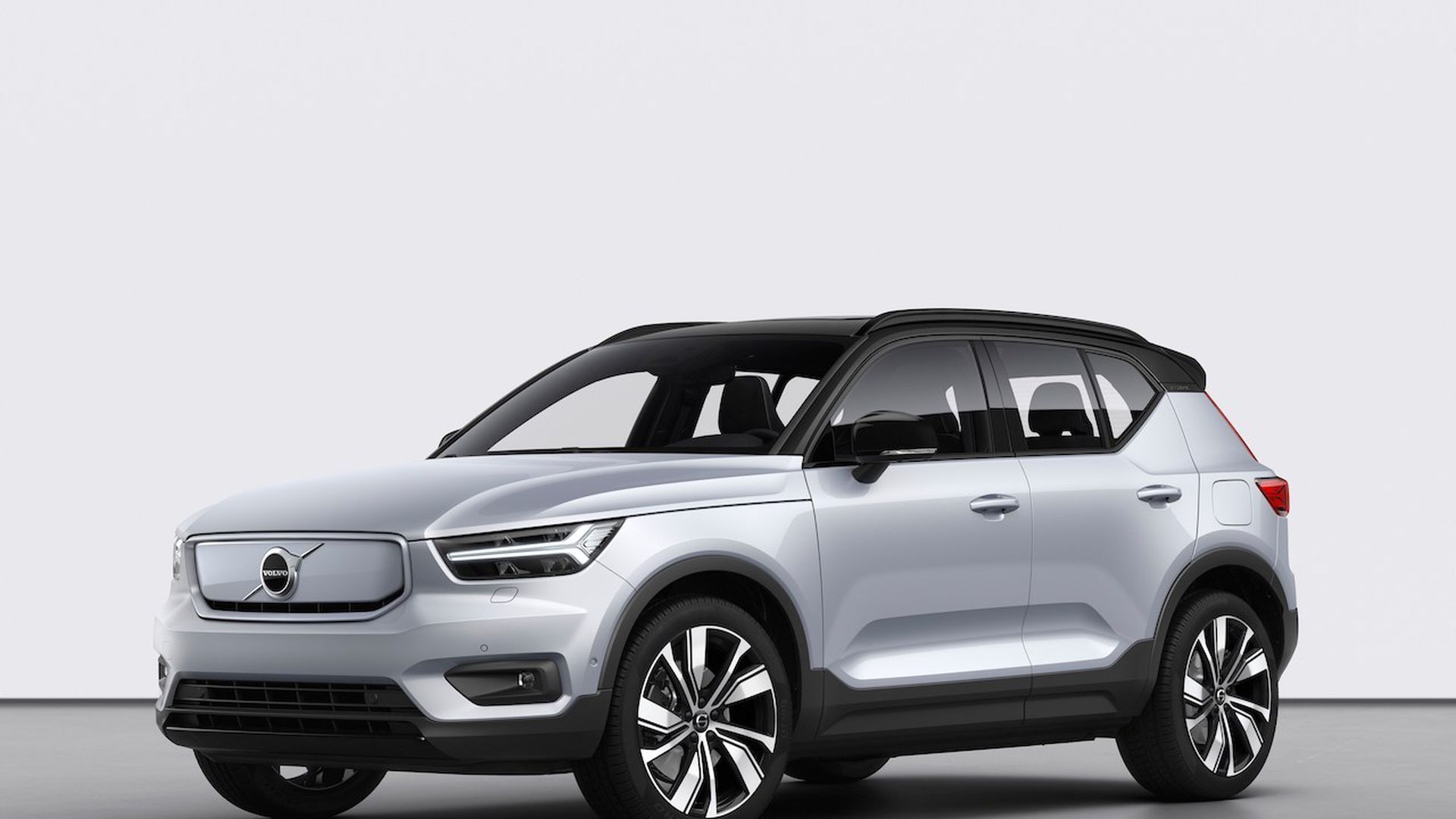Electric vehicles see both gains and growing pains
Add Axios as your preferred source to
see more of our stories on Google.

The Volvo XC40 Recharge. Courtesy: Volvo
The slow global transition to electric vehicles is facing a mix of green and yellow lights.
Driving the news: Volvo has taken the wraps off its first fully electric vehicle, the XC40 Recharge, a small SUV unveiled yesterday that has a range of roughly 250 miles.
- Specifics on pricing are unclear. But per multiple reports, Anders Gustafsson, the automaker's top U.S. official, said it will be around $50,000 with incentives.
- And Ford announced Thursday what it calls North America's "largest electric vehicle charging network" as it prepares to launch its line of electric cars.
- Via CNN, Ford is working with EV charging companies Greenlots and Electrify America. "When needed, users will be directed to one of the network's chargers using an app or in the vehicle's central touch screen," they report.
Why it matters: The Volvo SUV — slated to be available in the U.S. in late 2020 — is the latest of an expanding number of consumer offerings. Legacy automakers and startups alike are planning a suite of new models.
The big picture: The number of fully electric vehicles on sale in the U.S. is slated to jump from 21 this year to 35 next year, according to the research firm IHS Markit. They see it mushrooming from there, reaching 130 by 2026, according to data projections shared with Axios. Ford, in its charging announcement, notes that its "Mustang-inspired SUV" will arrive in 2020, and the company is pouring billions of dollars into EV efforts in the coming years.
But, but, but: This fall has brought a fresh reminder of why the transition to electric vehicles faces headwinds, too. "A recent streak of events highlight the challenges (from financial to technical) with commercializing all-electric transport," Morgan Stanley analysts said in a note this week.
- They note examples including the financial struggles of the Chinese EV startup Nio and Dyson's decision to pull the plug on its EV plans.
- Several recent reports show slowing sales in the U.S., and China, where the government has recently cut subsidies.
The intrigue: The United Auto Workers' strike against GM underscored how the shift toward EVs is forcing changes in automakers' relationships with their workforces. A tentative agreement to end the strike emerged yesterday.
- Axios' Joann Muller recently flagged a UAW analysis which found that EVs have 80% fewer parts, and are easier to assemble, which means they'll require a lot fewer workers.
- GM's electric plans are part of the tentative agreement to end the strike. Per the Detroit Free Press, GM's Detroit-Hamtramck Assembly Plant would stay open to produce an electric pickup truck.
Go deeper: The risky business of electric vehicles
